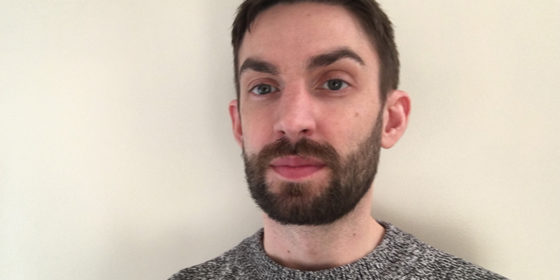As a doctor and gay man I feel it is a huge step forward that England’s health service is now gathering and recording patient’s sexual orientation.
The change came in October last year. It means England now has a consistent way to collect data on patients’ sexuality, across the whole National Health Service.
I work as a GP in Manchester and for us, this is nothing new. We have been asking patients their sexual orientation when they register with us at the practice for years. Our experience is that patients have accepted this without complaints and generally understood why we are doing it.
Why does it help the NHS to know your sexuality?
I welcome the national roll out of this standard for two main reasons.
Firstly, we need to normalise the process of asking people their sexual orientation.
Many people wouldn’t even think twice about ticking a box about ethnicity or religion. It is imperative we make this the same for sexuality. This will help ensure lesbian, gay and bisexual people are treated equally within the health service.
The second reason is that we need to understand why LGBTI people are accessing health services. The more we know about that, the more we can improve provision and enhance the experiences of patients. Without counting people, we can’t know how, where and when to improve.
You can have a better experience as a patient
Perhaps unsurprisingly, some of the media coverage of the new policy has been negative. However, I can assure patients we will not be asking people to disclose their sexual orientation at every GP or hospital appointment.
I fully agree that for many situations knowing someone’s sexual orientation is not relevant to the consultation.
On the other hand, there are many examples where a patient’s experience can be improved if their sexuality is known.
For example, a female patient came to see me about wanting to get pregnant. Because we collect data already, I could see from her records she was a lesbian. Therefore I did not need to ask any questions assuming she had a male partner.
The patient felt much more relaxed and was able to talk openly about her issues without fear of being judged or having to ‘come out’ to me.
Knowing your sexuality helps your doctor provide better care
It’s important to realise this new system is not compulsory. You don’t have to disclose your sexual orientation if you do not want to.
However, it can help your health if you do feel you can disclose.
It’s important to remember that LGBTI people still suffer from significant health inequalities. For example, we have greater rates of mental health issues, sexually transmitted diseases, drug and alcohol misuse.
If clinicians are aware of your sexual orientation and you don’t have to ‘come out’ to your doctor, then there is more time within the short space we have with patients to talk about some of these potential problems and signpost to services that may be of benefit.
In another example, a 55-year-old gay man came to me with many physical symptoms. After a few consultations it became clear he was suffering from depression. In particular he was concerned about how his recreational drug use was affecting his health.
His sexuality was a factor as he felt he was expected to behave in a certain way. The most important thing for him was having someone who would listen and understand.
We were then able to talk around wider issues and support him with his drug use and signpost to sexual health services. Being aware of his sexuality made some difficult discussions easier and the consultations more focused for his particular needs.
It may not impact your care today, but it will gradually transform services
The LGBT Foundation in Manchester has worked closely with NHS England on the new data gathering rules. They have produced a good practice guide which helps us to understand why monitoring is so important. It shows how it can be implemented not just throughout the NHS but across other public bodies also.
The Equalities Act 2010 protects sexual orientation alongside race, religion and other characteristics. Therefore the NHS has a responsibility to provide services relevant to the needs of LGBT patients.
Over time, as the NHS collects this information, it will start to impact what services we offer and how we tailor them to specific areas. For example, if we know that certain areas within the UK have higher proportions of LGBTI patients then we can focus particular resources, like HIV testing or encouraging cervical smears for lesbian women.
We all have an obligation to look after ourselves and those around us. As a community we need to ensure we have the same rights and opportunities as everybody else. Sexual orientation monitoring is a massive move towards equality and acknowledging the diversity within the UK.
I hope people will see this as on opportunity for positive change. It may not have a direct impact on your care immediately. But the more information we collect, the more we can transform services long term.
I have to admit I used to feel anxious about ticking a box about my sexuality. But I now feel empowered knowing that I am being treated more equally within society and that my health needs are recognized.
Also on Gay Star News:
Top US doctor on HIV undetectable sex: ‘From a practical standpoint, the risk is zero’







